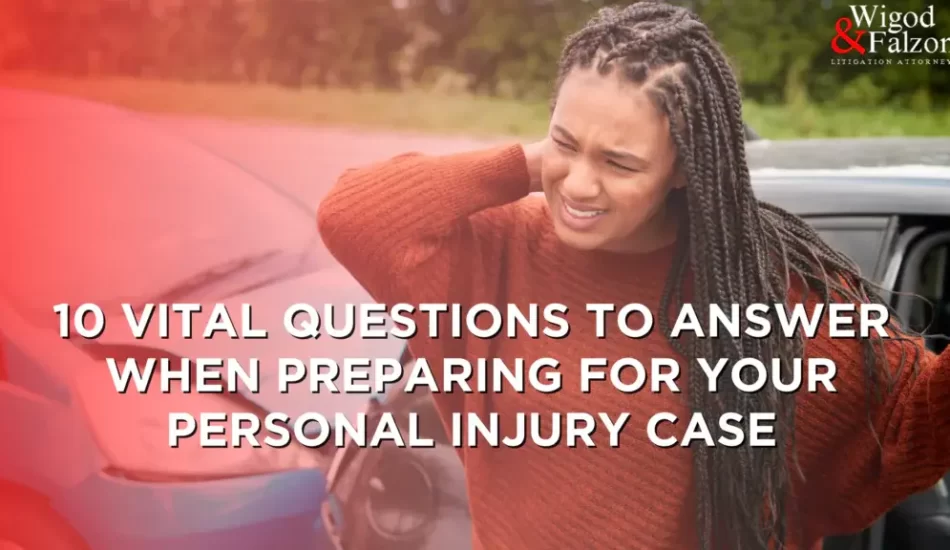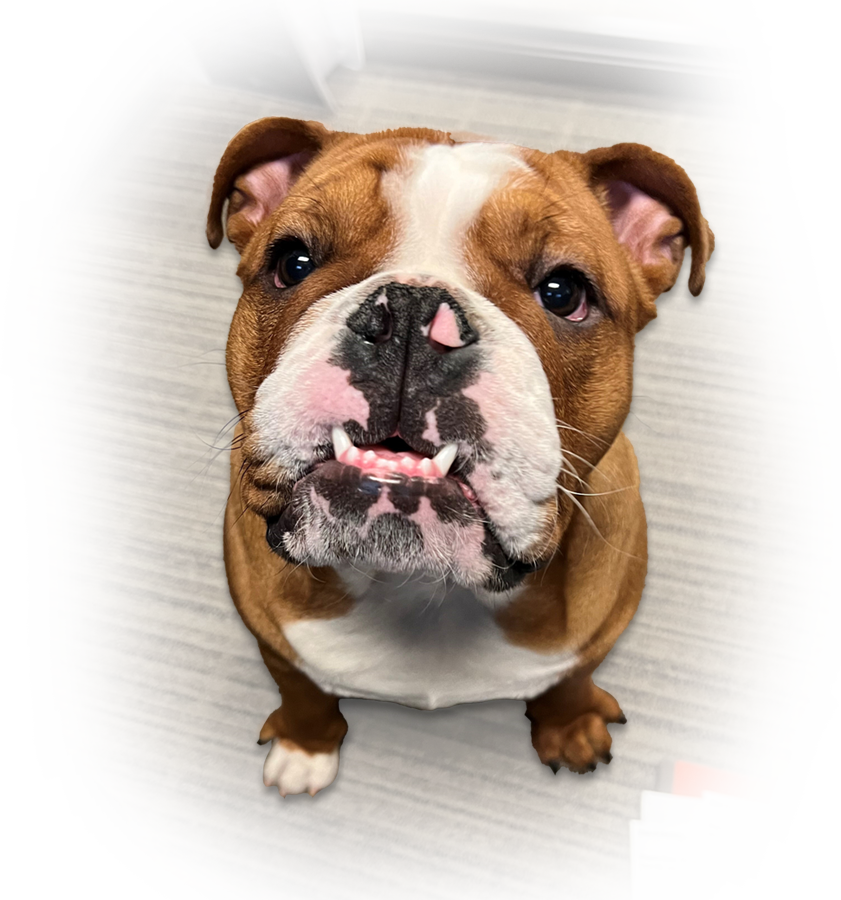10 Vital Questions to Answer When Preparing for Your Personal Injury Case

When dealing with the aftermath of an injury, the last thing you want to worry about is navigating the complex world of personal injury law. That’s where an experienced personal injury attorney can help guide you through the intricacies of your case with a personal injury case checklist.
However, before consulting with a personal injury attorney, you’ll want to prepare by following the checklist below. Doing so will help streamline the legal process and could significantly improve your case’s chances of a successful outcome.
Your Personal Injury Case Checklist
1. Are There Any Witnesses To The Incident That Caused Your Injury?
Witness testimony can be a game-changer in personal injury cases, particularly under Michigan law, where the issue of fault or negligence often plays a crucial role. Witnesses can provide independent verification of your account, helping to strengthen your credibility and potentially tip the scales in your favor.
It’s advisable to gather the contact information of anyone who witnessed the incident and might be willing to provide a statement or testify. Record initial impressions or statements from witnesses as soon as possible, as memories can fade.
Your Michigan personal injury attorney can later conduct formal interviews with these witnesses to include their accounts in your comprehensive case strategy.
2. What Is The Nature Of Your Injury?
In Michigan, the nature of your injury influences the damages you may claim and the applicable statutes of limitations and evidentiary requirements. Whether you’ve been involved in a car accident, suffered a slip and fall, or been a victim of medical malpractice, different types of injuries often require different legal approaches.
For example, a traumatic brain injury from a car accident might require extensive medical records, expert testimony, and a long-term care plan to quantify damages properly. On the other hand, a slip and fall resulting in a sprained wrist may involve a shorter healing period but could still have consequences like lost wages from missed work.
By clearly understanding and documenting the nature of your injury, you can better prepare for what lies ahead in the Michigan legal process.
3. How Did The Injury Occur?
Providing a clear, detailed account of how the injury occurred is crucial for establishing negligence. For example, if you’re consulting with a car accident lawyer, you’ll want to recall the exact sequence of events leading up to the accident.
Try to document details such as photographs of the accident scene, vehicle damage, any conversations with the involved parties, your physical and emotional state, and even weather conditions at the time of the accident. This level of detail can help your attorney piece together a more compelling case after a motorcycle accident. Additionally, be sure to capture any injuries you sustained, including road rash, broken bones, or other visible signs of harm, as these can be crucial for your claim and for assessing the full extent of your damages.
4. Who Is Responsible For Your Injury?
Knowing who is responsible for your injury is not just crucial, it’s mandatory to determine against whom you can file a lawsuit. Michigan’s laws often incorporate concepts like comparative negligence, which can allocate a percentage of blame to multiple parties, including possibly yourself.
Whether the responsible entity is another driver in an auto accident, an employer in a workplace incident, or a healthcare provider in a medical malpractice case, understanding these nuances of liability is indispensable for a successful claim.
5. Have You Received Medical Treatment For Your Injury?
Keep track of all medical bills, diagnostic tests, treatments, and any related out-of-pocket expenses like mileage for medical visits. Furthermore, following a consistent medical treatment plan as advised by healthcare professionals can demonstrate the ongoing nature of your injuries, which could be crucial for your case.
Consistent medical care not only substantiates the severity of your injuries but also provides your attorney with the evidence needed to seek compensation for ongoing medical expenses, pain and suffering, or even long-term care needs.
6. Have You Missed Any Time From Work As A Result Of Your Injury?
Missing work due to an injury can result in significant financial hardship, and under Michigan law, loss of income is a recoverable damage in personal injury cases. It’s crucial to document how much your injury has impacted your ability to work.
Gather proof such as pay stubs, employment contracts, and even letters from your employer. Your Michigan personal injury attorney can use this evidence to advocate for compensation not just for the wages you’ve already lost but potentially for future earning capacity if your injury has long-term effects on your ability to work.
7. Have You Incurred Any Expenses Related To Your Injury, Such As Medical Bills Or Travel Costs?
In Michigan, you may also be able to claim additional out-of-pocket expenses like travel to medical appointments, parking fees, or even accommodations if you must stay overnight for treatment.
Collect all relevant receipts, invoices, and other proof of these expenditures. By presenting a comprehensive picture of your financial burden, your Michigan personal injury attorney will be better equipped to advocate for full compensation.
8. Have You Reported The Incident To The Appropriate Authorities, Such As The Police?
An official police or accident report serves as a record that can lend credibility to your account of the incident. This can be particularly useful when negotiating with insurance companies or presenting your case in court.
Moreover, failure to report could weaken your case and may also be a violation of Michigan law, depending on the nature of the incident. Therefore, filing a report as soon as possible is advisable to strengthen your personal injury claim.
9. Have You Consulted With A Personal Injury Attorney?
Taking on a personal injury case without legal counsel can be like navigating a maze without a map. This is why consulting with a skilled Michigan personal injury attorney is vital.
At Wigod & Falzon, our expertise in Michigan’s specific laws and regulations enables us to personally guide clients through the intricacies of their cases, advocating for the full compensation they deserve. From understanding the nuances of Michigan’s no-fault rules to the deadlines for filing claims, having a seasoned legal team by your side can make a significant difference in the outcome of your case.
10. Have You Filed A Claim With Any Insurance Companies Related To The Incident?
Dealing with insurance companies can be a complicated and often frustrating process. This is especially true in Michigan, where the state’s unique no-fault insurance laws add another layer of complexity to the claims process. It cannot be stressed enough; do not give a statement without an attorney’s advice first!
An experienced personal injury attorney, like the team at Wigod & Falzon, can provide crucial guidance. We can help you understand what documentation is required, negotiate with the insurance adjusters on your behalf, and even take the case to court if a satisfactory settlement isn’t reached.
By engaging professional help, you increase your chances of securing the full compensation you’re entitled to under Michigan law.
How a Personal Injury Attorney Can Help You
Following this case checklist before consulting with a personal injury attorney can make the legal process smoother and more efficient. For personalized guidance and expert representation, turn to Wigod & Falzon, your premier personal injury attorneys in Detroit, Michigan.
Plus, we work on a contingency fee basis. This means the attorney fee and costs of handling the case will be paid with a percentage of the settlement or judgment the client receives from their personal injury case.
Simply put, no recovery = NO FEE.
We specialize in personal injury cases, including car accidents, medical malpractice, and workers’ compensation. If you’ve experienced an injury due to someone else’s negligence, don’t hesitate to contact us for a free consultation.
Disclaimer: This blog post is intended for informational purposes only and should not be construed as legal advice. Consult with a qualified attorney for advice regarding your individual situation.


